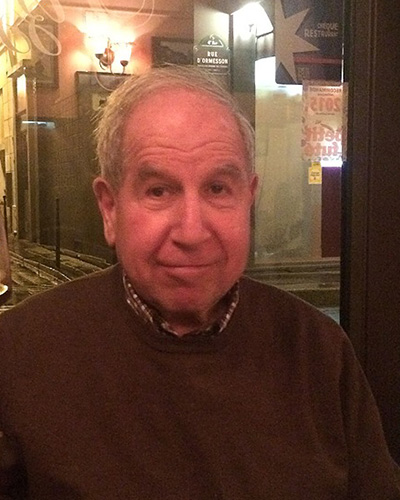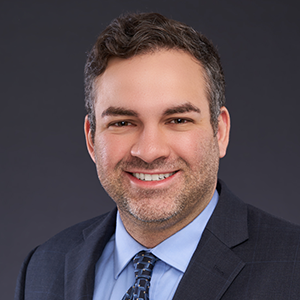In memoriam: Lawrence Rothfield
Lawrence I. Rothfield, a professor of microbiology, molecular biology and biophysics at the University of Connecticut Medical School, an expert on cell division and a member of the American Society for Biochemistry and Molecular Biology since 1966, died in December in Bloomfield, Connecticut, from pancreatic cancer. He was 94.

Rothfield was born Dec. 30, 1927. He attended the Bronx High School of Science and in 1944 enrolled in Cornell University at age 16. After graduating from Cornell in 1947, he earned his medical degree in 1951 at the New York University School of Medicine where he also completed postdoctoral training mentored by former ASBMB President Bernard L. Horecker. He later established a private practice where he once treated Marilyn Monroe, but his passion for discovery outpaced his enthusiasm for practicing medicine.
In 1968, Rothfield began his UConn career as a founding faculty member of the medical school. During his more than 50-year tenure, he served as the first chair of the microbiology department for 12 years and maintained a productive research program investigating membrane and cytoskeletal remodeling during bacterial cell division.
His seminal work unraveled how the MinCDE system regulates the precise spatial and temporal polymerization of FtsZ that establishes the division septum and splits a cell in two; this established him as a leading authority on cell division, and in 1992 he became a fellow of the American Association for the Advancement of Science. His 94 publications have been cited more than 10,000 times.
In a 1989 paper in the journal Cell, he identified the MinCDE genes and defined the functions of MinCD to block division septum formation and MinE to give MinCD topological specificity. In a 1992 paper in the journal Nature, he shared his discovery that the enzymatic function of FtsZ is guanosine triphosphate hydrolysis and this activity is required to form the division septum.
In retirement, Rothfield remained engaged with UConn research as professor emeritus of molecular biology and biophysics. At Duncaster, an independent living facility in Bloomfield, he was first in line of over 250 residents to receive the COVID-19 vaccine in February 2021.
“I know some people are worried about taking the vaccine, but the data are very clear,” he told the Jewish Ledger. “This vaccine is remarkably successful in protecting against serious life-threatening disease … Everyone should be vaccinated unless his/her physician advises against it.”
Rothfield is survived by his wife of 69 years, Naomi, a rheumatologist; four children; and six grandchildren.
Enjoy reading ASBMB Today?
Become a member to receive the print edition four times a year and the digital edition monthly.
Learn moreGet the latest from ASBMB Today
Enter your email address, and we’ll send you a weekly email with recent articles, interviews and more.
Latest in People
People highlights or most popular articles

Simcox wins SACNAS mentorship award
She was recognized for her sustained excellence in mentorship and was honored at SACNAS’ 2025 National Conference.

From humble beginnings to unlocking lysosomal secrets
Monther Abu–Remaileh will receive the ASBMB’s 2026 Walter A. Shaw Young Investigator Award in Lipid Research at the ASBMB Annual Meeting, March 7-10 in Washington, D.C.

Chemistry meets biology to thwart parasites
Margaret Phillips will receive the Alice and C. C. Wang Award in Molecular Parasitology at the ASBMB Annual Meeting, March 7-10 in Washington, D.C.

ASBMB announces 2026 JBC/Tabor awardees
The seven awardees are first authors of outstanding papers published in 2025 in the Journal of Biological Chemistry.

Decoding how bacteria flip host’s molecular switches
Kim Orth will receive the Earl and Thressa Stadtman Distinguished Scientists Award at the ASBMB Annual Meeting, March 7–10, just outside of Washington, D.C.

Thiam elected to EMBO
He was recognized during the EMBO Members’ Meeting in Heidelberg, Germany, in October.

